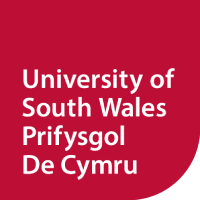About the Project
Extended deadline: Midnight Sunday 21st August 2016 (Interviews will be held w/c 5th September)
This project provides an excellent opportunity for the successful candidate to use their knowledge of biochemistry, biotechnology or engineering to research and develop a flexible biomethane production concept based on novel process integrations and a novel supervisory control system. The successful candidate will join the research teams at the Engineering Research Centre and the Wales AD Centre within the Sustainable Environment Research Centre which was rated as having an output of greater than 75% of internationally excellent or world leading research in the General Engineering REF2014. The project is co-sponsored by Wales & West Utilities which, like other gas distribution utilities, are challenged to increase green CH4 within their gas network to address security of supply and emissions reduction and deliver timely natural gas to meet network demand.
The 3-year collaborative industrial R&D programme proposes to develop a technology concept based on anaerobic digestion integrated to deliver demand led green CH4 production, which is independent from the feedstocks throughput. The project proposes to evaluate a selection of integrations between novel biotechnology reactors operating on a range of organics as well as inorganic gases with chemical/enzyme/membrane processing/separations to facilitate daily/weekly and inter-seasonal energy storage to enable rapid conversions to methane when necessary, and to establish a novel supervisory control system that links predictive modelling for gas network demand with novel control strategies for the biotech plant operation. Technical, economic and environmental feasibilities will also be performed to evaluate the novel concept and its potential scenarios for implementation.
The most significant limitation on the deployment of biomethane grid injection in the UK is the number of sites where viable amounts of feedstock are present, and where there is a grid injection point with sufficient year round capacity to accommodate the biomethane produced. Current configurations of anaerobic digestion (AD)/biomethane plants are inflexible in terms of gas output (over days/seasons). Current AD plants have long conversion periods and cannot vary output suddenly, leading to a mismatch between supply/demand that can render many AD plants unviable. The project will address these challenges by developing a novel technological concept, which integrates anaerobic biotech/processing technologies with real-time process control that will enable green CH4 to be produced on demand, decoupling production with supply of feedstocks, therefore
increasing AD/biomethane plants’ viable locations by working as energy storage providers. The proposed system, in addition to a plant's controlled variable (daily/season) gas output, would also allow gas production transferability spatially and also between centralised & decentralised energy systems.
The work builds on the proof of concept research undertaken at the USW on anaerobic biological processes' design and operation, profiling and development of enriched microbial cultures and implementation of novel monitoring, modelling and control strategies for hydrolysis, acid fermentations and methanogenic conversions, and their integration with electrochemical and physical separation and concentration processes; the novel biomethanation process that allows renewable power to be converted to green methane gas and the development of control strategies for AD systems and predictive modelling strategies. The work will be delivered within USW’s excellent laboratory facilities and using state of art equipment and will integrate with WWU gas distribution scenarios.
Eligibility of Student:
To be eligible to hold a KESS studentship, you must:
- have a home address in the Convergence area* (details below) at the time of registration.
- have the right to take up paid work in the Convergence area* on completion of the scholarship.
- be classified by the University as ‘home’ or ‘EU’ for tuition fees purposes, according to the University’s guidelines.
- satisfy University of South Wales’ admissions criteria: see below
*The Convergence area covers West Wales and the Valleys, and is made up of the following 15 local authorities: Isle of Anglesey, Gwynedd, Conwy, Denbighshire, Ceredigion, Pembrokeshire, Carmarthenshire, Swansea, Neath Port Talbot, Bridgend, Rhondda Cynon Taf, Merthyr Tydfil, Caerphilly, Blaenau Gwent and Torfaen.
Qualifications and experience:
Eligible applicants will have:
- A good first degree (2i or higher) in a relevant science or engineering discipline
- Positive attitude towards practical and applied research
- Must be able to work in a self-directed manner and have the inter-personal skills to interface with the larger research team and the industrial partner
- Good computer and numerical skills
- The ability to be self motivated
- Willingness to travel and work safely in laboratory and industrial settings
The position is available from 1st October 2016.
Funding Notes
The project is funded by the Knowledge Economy Skills Scholarship (KESS) programme and will be based in the Faculty of Computing, Engineering and Science at the University of South Wales. KESS is a programme funded by the European Social Fund (ESF) awarded by the Welsh European Funding Office (WEFO) in the Welsh Government.
The studentship will cover the fees for a 3 year full time PhD programme and pay a stipend of circa £14k p.a. There is also around £3.5k project support costs available for consumables, travel/conference attendance, minor equipment, training (including the KESS Grad School) and conference attendance.

 Continue with Facebook
Continue with Facebook

